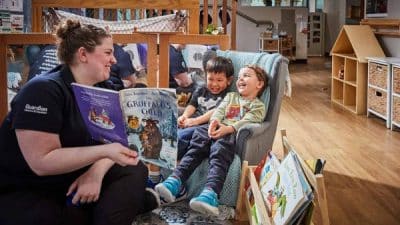How Children Really Learn
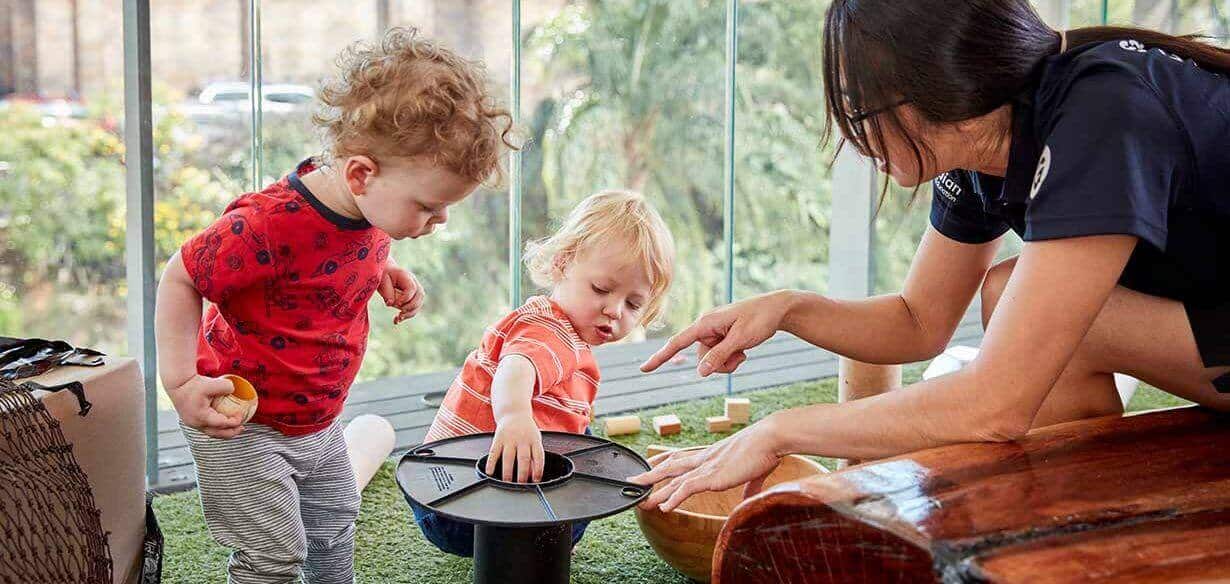
Children, no matter their age, learn best when they feel secure and happy – in a stimulating environment, with a supportive network. Our Teachers and Educators take pride in developing educational programs based in play and real-world contexts. These support each child’s current knowledge, strengths, ideas, culture, abilities and unique interests.
We build sandcastles and explore why wet sand and dry sand behave differently. Bake and have conversations about why things go into the oven cold and wet and come out hot and dry. Grow vegetables, using these in our cooking at the centre, and supporting children to develop respect for the environment.
Our environments spark a child’s natural curiosity and inspire them to wonder and build their confidence. As children develop, so too does the complexity of the materials in our environments to extend and further enhance learning.
Childcare provides the building blocks children need for a lifetime of learning. That’s why our Teachers and Educators are trained and focused on developing children’s skills, confidence and independence from as early as six weeks of age.
Here are some simple yet effective ways to teach children five important 21st century skills.
Developing Reading Skills
A common misconception is that children only begin learning to read when you present them with words. Children do not learn how to read or write overnight. Nor do they simply begin the year before they start formal schooling – this skill begins to develop a lot earlier. For example, when a baby watches a bubble floating through the air, the visual tracking skills they use are the same they will later require to read and write. Visual tracking is one of the first steps in learning to read, and you can support your child to develop these skills in many of ways.
Families can develop their child’s reading skills with techniques such as:
- Rhyming, which will help children imitate and remember
- Reading aloud familiar books
- Encouraging your child to turn the pages one at a time
- Having frequent conversations. The more you have real conversations about real topics, the more your child will understand and begin to develop and use language.
Younger children will communicate through actions, hand movements or facial expressions, while older children begin to use new words.
Our Teachers and Educators are tuned in to understand this unique communication with young children. Thanks to their training and the relationships they nurture and develop with each child, this creates a safe and supportive space for skills to develop. This is how children explore, learn and grow. We encourage children by:
- Asking them questions
- Closely watching and responding to the actions and cues of our babies
- Giving each child plenty of time to respond to questions and situations
- Always acknowledging a child’s efforts.
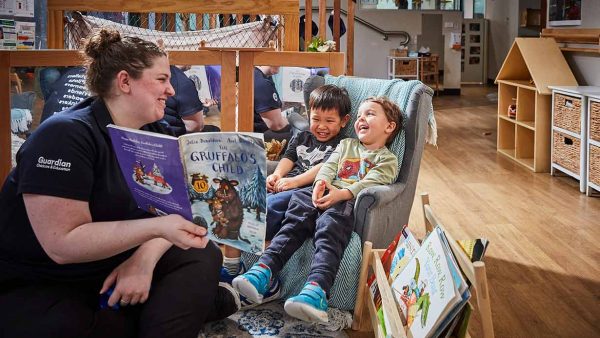
Sparking Curiosity
Curiosity and questioning your surroundings plays a key role in developing problem-solving skills. Similar to reading skills, inquiry is a skill developed and explored earlier than the age your child begins to ask 101 questions!
It actually starts with babies as they begin to investigate their surroundings and place in the world. From looking at different lighting and seeing and feeling different textures, to using their whole bodies and all senses to experience something new. Children’s curiosity begins flourishing at an incredibly young age.
As parents, there are some clear ways you can encourage your child’s curiosity – some you may already be doing without even realising! Use a torch to create shadows that move or encourage your child to play in front of the mirror to help them better understand movement and facial expressions. Or, offer your child a basket filled with materials of different textures, colours or even scents to explore together. The use of ‘opened-ended materials’ gives babies and children a limitless supply of possibilities.
By providing open–ended materials, our Teachers and Educators encourage children to investigate and discover many literacy and numeracy concepts. For example; big, small, tall, short, volume, numbers, pattern-making and counting. They ask questions and provide the space and time to give children of all ages opportunities to work things out. This helps develop further ideas and their own theories on how these materials work.
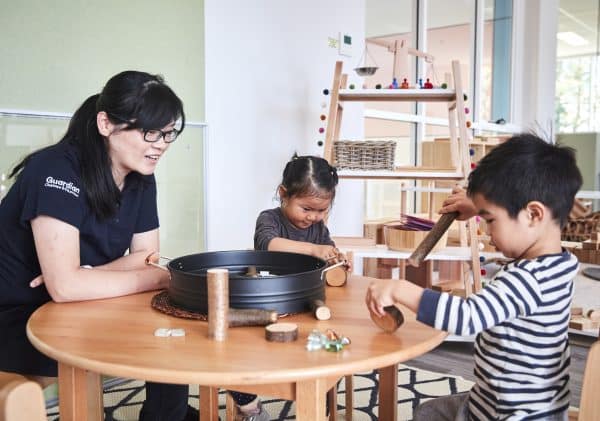
Collaboration and Friendships
Introducing your child to different people across a range of age groups and cultural backgrounds will help them as they learn to socialise. Childcare offers your child a great opportunity to develop relationships with a wide group of people.
From birth to two, this begins with your child making eye contact, expressing happiness when they see familiar faces, and starting to be cooperative when playing. From around two-three years, friendships are formed. Children start noticing and imitating other children’s actions, playing alongside others in a cooperative manner, sharing, showing empathy and more.
Enrolling in childcare is a great way to present children with opportunities to build friendships in safe and nurturing environments.
Becoming Active Movers
There are telling signs that your child is reaching developmental milestones when it comes to movement, which the untrained eye may not recognise. Reaching for objects, raising their head and chest when lying on their stomachs, transferring objects from hand to hand. These all indicate your child’s continual development from the ages zero – two.
For toddlers, this development may be seen through them listening and moving to music, avoiding obstacles and building with more complexity. Even stopping readily as they take more notice of what is around them. Role–modelling these skills and encouraging your child’s progress are great ways to support them further.
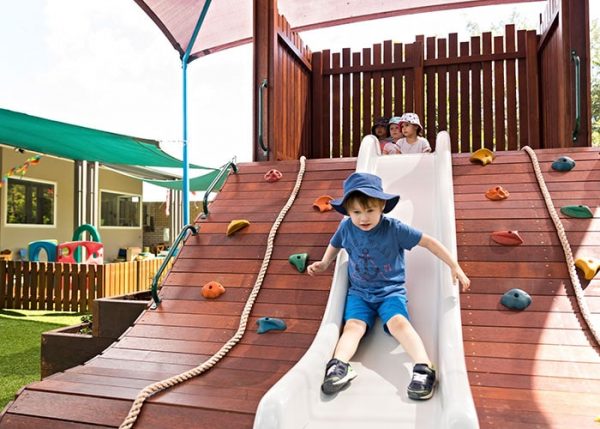
Self-Exploration
Self-exploration is important for children when learning about their own identities, and will help them become well-adjusted adults. Recognising themselves in the mirror and referring to themselves by name and using terms such as “I” and “mine”. Playing independently is also a quality to look out for.
Likewise, a sense of self can be seen when they become increasingly aware of themselves as separate from others. Children will begin to exploring their own thoughts and feelings and enjoy doing things “all by myself”. These factors all encourage independence in children.
Learning through play and in relationships with others encourages children to build their knowledge, develop confidence and embrace curiosity. Along the way they naturally refine practical life skills as they explore, experiment, discover and solve problems through play. And importantly, they build their confidence and forge a lifelong love of learning.
Looking for the right Childcare Centre for your Family?
Submit your details and a member of our Concierge Team will be in touch to discuss what you need and how we can help you experience something more than childcare.
We'll be in touch soon.






